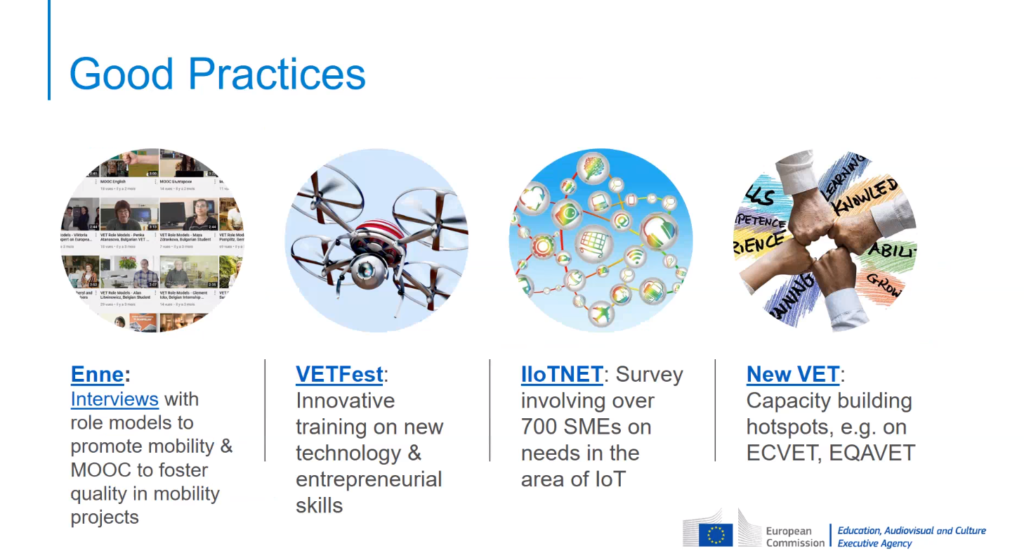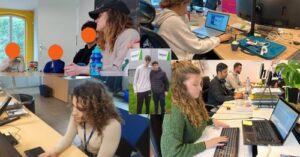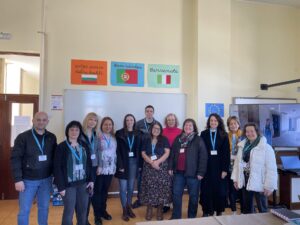Last 23 February 2021, at midterm in the implementation of the project activities, the EACEA has invited all the coordinators of the selected Networks and Partnerships of VET Providers to meet and share good practices and information about the new programme.
In particular, the participants have been invited to discuss the following three questions:
- How did you establish and/or reinforce VET providers’ networks and ensure their sustainability?
- What activities took place to enhance cooperation for VET quality and attractiveness?
- How are you meeting the challenges linked to COVID-19? What technical or content-related support would you need from the EACEA and / or the EC?
We are glad to notify our members that ENNE has been listed by the officers of the EACEA as one of the best practices in enhancing the quality and attractiveness of VET, with a special mention of the MOOC and the Role Model interviews! We have explained that our strategy is based on the valorisation of the activities carried out by the members of our networks, who have the chance to share them through multiple communication channels and scale them up within the framework of capacity building and internationalization activities.
Moreover, the midterm online meeting has been very useful to learn about some preliminary information on the characteristics and the tentative schedule of the new Erasmus+ programme 2021-2022. The VET sector will have a key role in linking the education and active labour policies and initiatives of the Commission with a vision that relies on:
- Equipping young people and adults with the skills to manage the recovery and the just transitions to the green and digital economy, and to thrive in the evolving labour market cycles;
- Fostering inclusiveness and equal opportunities and contributes to achieving resilience, social fairness and prosperity;
- Promoting European vocational education and training systems in an international context so that they are recognised as a worldwide reference of excellence.
The programme will still be structured on the three Key Actions that have been established with the passage from the LLP to Erasmus+ in 2020, but several new features have been adopted especially in KA1 and KA2. The international mobility of VET staff and students (KA1) will be accessible either through an accreditation system, with annual calls and long-term mobility strategies, or through the application or short-term projects, which will have a duration limited to 18 months and could involve a maximum of 30 participants in each project. In terms of possible activities to be carried out during the mobility, the participation in structured training courses will be eligible also for VET teachers (giving them the same opportunities as their colleagues in school and adult education) and VET students, besides travelling for short-term or long-term learning mobility, will have also the chance to take part in skills competitions such as hackathons, international contests and fairs.
In the field of transnational cooperation between VET organisations (KA2), the new programme will be offering three types of funding opportunities: one still managed at the national level by the different Erasmus+ National Agencies, which will include a small-scale partnerships scheme, especially targeted to newcomers, and a cooperation partnerships call addressed to more experienced institutions. The EACEA will be responsible for the promotion, management and evaluation of two other frameworks: partnerships for excellence, aimed at supporting the establishment of the so-called CoVE (Centres of Vocational Excellence) and the brand new Erasmus+ Teacher Academies, and partnerships for innovation that will be realized thanks to different calls for Alliances for Innovation and Forward-Looking Projects.
All the ENNE Networks coordinators are looking forward to supporting their members in becoming active players in the field of EU cooperation and taking advantage of these different financing opportunities!





